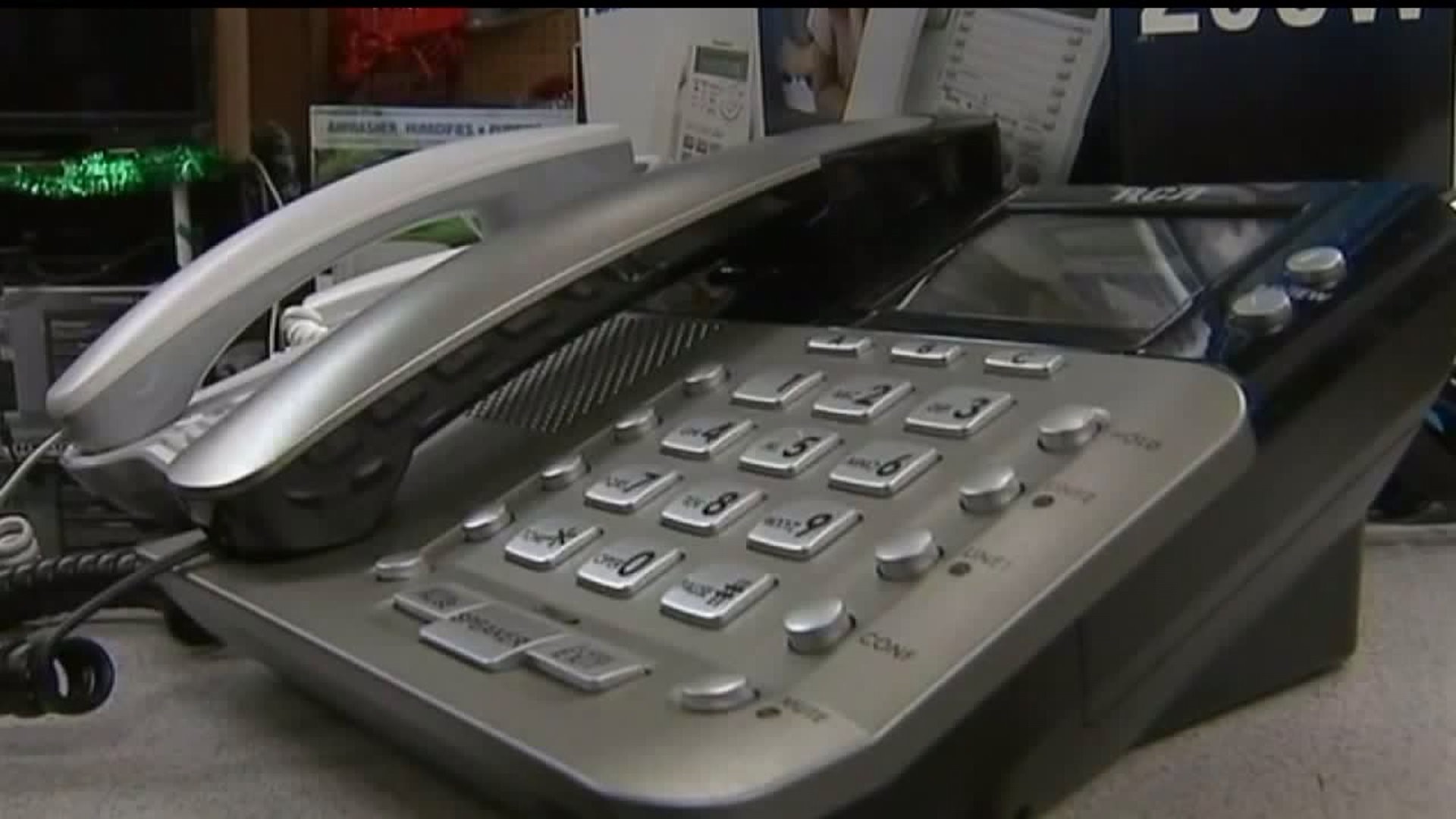WEST MANCHESTER TOWNSHIP, Pa --Many of us screen our phone calls and if you don't know the number that pops up on your caller ID, you don't answer it.
When you get a call from your mom or your kids, you're probably going to answer.
How are scammers though able to spoof their number to looks like someone you often call?
Susan Sanger of West Manchester Township, York County doesn't recognized most the phone numbers as she goes through her call log on her home phone.
"It feels like it's very intrusive to me and very annoying," she said.
Recently though, she's been getting phone calls that appear to be coming from family and friends.
"The people who are calling are changing the caller IDs to make it look like people that I know, people in the area, and when I answer it's somebody either trying to sell something or somebody with a scam."
Sanger says her number is listed on the Do Not Call list and has no idea how the scammers know who she talks to.
"I feel like a prisoner to my phone, I can't trust answering it anytime."
Andrew Hacker is a cyber security expert at Harrisburg University.
He says this type of scam is called spoofing and it`s nothing new.
"Certainly to be able to do that with your specific personal information, that person would have to have access to your contacts, which actually isn't even that difficult could anymore."
There are plenty of websites that allow people to use an internet-based phone number to call someone.
For that most part, that`s legal.
Hacker says there are exceptions.
"The FCC does say you are not legally allowed to spoof a number if you are meant to cause harm."
Hacker thinks the reason you may be seeing an increase is spoofed calls is because it`s easier than ever to get your information.
"More phones these days are internet enabled, so you know a lot less landlines."
If you send text messages via wifi, or you if your home phone is through a plan that is linked to your internet and cable, all of this means your information is in more than one place and easier for someone find.
Notice more calls on your cell phone?
Hacker says your apps could be the culprit.
When you download a new application and a pop up wants access to your contacts, where is that information really going?
It`s hard to tell.
"If you just blindly hit yes then you're not even aware of what that app's looking through," said Hacker.
As for Sanger, she can`t pinpoint how someone got access to her call log.
She doesn`t even have a smartphone.
Hacker says there is still always a chance.
The phone company likely isn't selling your information, hacker says it could be possible though.
What is more likely, according to Hacker, is that somewhere along the line, you signed up for an app or a service online that gave you access to your contacts.
As for what you can do now?
Hacker said, "Don't answer your phone, you just call everybody is what you have to do I guess."
Hacker is only being half serious there.
As for what you can do to stop it, it`s not easy because your information may already be out there.
The Federal Communications Commission handles spoofing calls, so if this keeps happening to you, you can file a complaint.
This type of violation would fall under the Truth in Caller ID Act which prohibits callers from deliberately falsifying caller ID information to disguise their identity with the intent to harm or defraud consumers.
The FCC says it is trying to crack down on these spoofed calls, just recently fining a Florida man for spoofing 96 million robocalls in a three-month period.

